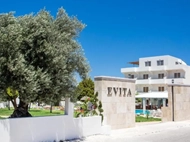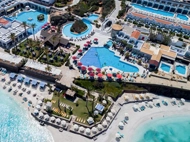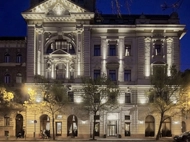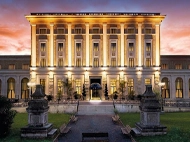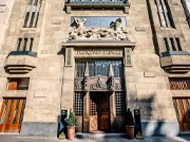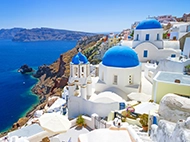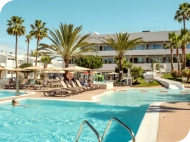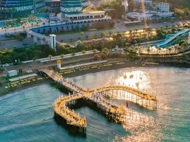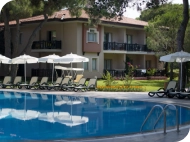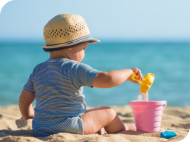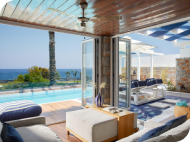When is Oktoberfest?

The festival ends on the first Sunday in October and starts 16 days prior to this. But don’t worry if you can’t do an Oktoberfest trip on those dates! You’ll find a mini version of the event is held in the exact same spot during April and May. Named Frühlingsfest (Spring Festival), it’s referred to by locals as Oktoberfest’s little sister. While year round you can visit the Beer and Oktoberfest Museum, located in a 14th century townhouse.
What’s there to see and do?
You may be surprised to learn that Munich’s annual Oktoberfest is not just a drinking festival. Ok there might be 38 beer tents and 7.3 million litres of booze drunk annually. And you might see some superstrong barmaids carrying a daringly high number of full beer glasses. But there is so much more to see! You'll find funfair rides, food stalls, games and even live music across Theresienwiese's 42 hectares.
Children will want to ride the 50m ferris wheel. It’s illuminated in the evening, the perfect time to snap a photo for your social feed. While there’s roller coasters for adrenaline junkies, probably best ridden before sampling too much of the local Bavarian cuisine. Or you can always treat your partner to a gingerbread heart, and if you have a little princess in tow, she might like a sweet necklace. And when you get to tucking in to the local delicacies, your ears will be treated to some traditional brass music.
On the second Sunday of the festival the mayor of Munich and Oktoberfest ‘celebrities’ conduct brass bands at the feet of the Bavaria statue. This is known as the ‘Wiesn landlords’ concert, with around 300 musicians performing, and if you happen to be there for the grand finale, you’ll get to see thousands of colourful balloons released into the audience.
What should I wear?

Dressing up in traditional attire is optional. If you don’t want to wear the full outfit you could opt for a hat or a themed t-shirt. The traditional dress for women is a tight-fitting Bavarian dirndl dress, worn over a white blouse, with an apron tied around it. Though, you have to be careful where you place your dirndl bow! If it's on the left you're advertising your single, while if it's on the right it indicates your taken. If you're tempted to tie your bow in the middle, you might want to think twice. This was traditionally worn to indicate your virginity. Waitresses often wear their bow at the back, so it's best to avoid this side, unless you want drinks orders shouted at you.
It’s customary for men to wear tight fitting lederhosen (with braces), accompanied by a shirt - usually checkered. Ideally you should wear-in your lederhosen before your trip, but if you can’t then you might want to buy a generous size to ensure you can fit all that flavoursome food and Bavarian beer in your belly!
Where can I stay?
While Munich doesn’t have a reputation of being a cheap place to stay, we have a wide range of hotels for your Oktoberfest holiday (or maybe a Frühlingsfest trip), whatever your budget. Here’s a few of our favourites:
ibis München City Süd (2 star)
Thanks to the excellent public transport system in Munich, you don’t need to stay within walking distance of the Oktoberfest site. This well-connected hotel is close to U-Bahn station with bus & tram stops also nearby. Breakfast is offered from 4am to midday, so it’s the ideal choice for those who’ve stayed out late sampling the local helles.
Away from the hustle and bustle, this hotel overlooks the Englischer Garten, one of the world’s largest public parks. The green expanse is so big it has everything, even surfing - yes in an urban park! The Alpine themed Tivoli Restaurant is on the 15th floor, so offers some great views. Tram 16 will drop you off within walking distance of the Oktoberfest site, swinging around the old town area on the way. To avoid the walk you could opt to join the U-Bahn for two stops.
If after hearing the story about King Ludwig and Princess Therese, you feel you want to be treated like royalty, then this is the place to stay. It’s an art lover's dream with paintings and murals on display throughout the hotel. The onsite Irmi restaurant serves traditional Bavarian favourites and modern vegan equivalents. While the international buffet breakfast is served until 11am daily.
Alternative Volksfests

There’s plenty of Volksfests held in Germany throughout the year. So if you’ve done an Oktoberfest trip before and are looking for an alternative this year, you should consider one of the other autumnal Volksfests. Here’s our lowdown on some of the best:
Frankfurt’s Cannstatter Volksfest
The local’s do not refer to it as a beer festival but the city’s autumn fair boasts seven beer tents, with space to seat 24,000 people! While the picturesque Alpine Village includes bars and a beer garden, as well as food stands dishing up French cuisine. Like Oktoberfest, the travelling funfair provides entertainment for the whole family with attractions including ferris wheels and roller coasters.
The Volksfest starts on the last Friday in September and runs until mid-October. On the first Sunday a parade includes a Swabian-Hall swine pig, highlighting the festival’s agricultural origin. While if you’re lucky enough to be in Frankfurt on the 3rd October you’ll see the skies illuminated with all the colours of the rainbow, to mark German reunification.
If you’re looking for a place to stay in Frankfurt, you should consider Best Western Plus Welcome Hotel Frankfurt, with its central location and 4/5 TripAdvisor rating. This modern hotel also features a restaurant, serving local and international dishes, plus a sauna for when you want to relax.
Berlin’s Herbst-Rummel
Berlin’s autumn carnival runs for a whole month, starting on the first Saturday in September. With more than 70 rides to choose from it’s one of the best times for families to visit the German capital. Dare devils can have a go at bungee jumping. But if you’re more interested in the food than the rides, head here during the last two weeks to catch the Munich-style beer festival on Alexanderplatz, where you can also tuck in to pork knuckles, Brez'n, roast chicken and sweet treats.
Like most German cities Berlin has an excellent public transport system and if you stay at Hotel Riu Plaza Berlin you’ll be close to U-Bahn stations on four different lines, allowing easy access to the whole city. If you wake up too late for breakfast make use of their Grab & Go food service. Travelling with the little ones? Then you’ll be pleased to know the zoo is within walking distance.
Bremen’s Freimarkt
If you can’t travel at the end of September or beginning of October, Bremen’s carnival is an ideal choice, as it runs for two weeks from mid-October. Don’t call it Oktoberfest though, as it predates Munich’s festival by around 800 years! While you will find beer tents here, the main focus is the funfair, one of the largest in Germany. There are over 50 rides to choose from including a ferris wheel, roller coasters and a haunted house.
If you want to know what the first one was like in 1035 visit the Marktdöflein (little market) where smithies, masons, and jesters take you back to the days before newspapers, never mind mobile phones. After visiting the 11th century, you can return to the 21st century if you book a stay at the modern Steigenberger Hotel Bremen, full of contemporary comforts like WiFi and a Nespresso coffee maker. It overlooks the river and has a tram stop nearby.

About the author
Edmund Myerscough loves exploring new destinations. His favourite holiday, so far, was a trip to the Balkans that included Dubrovnik, Mostar and Kotor.
